- News
- Reviews
- Bikes
- Components
- Bar tape & grips
- Bottom brackets
- Brake & gear cables
- Brake & STI levers
- Brake pads & spares
- Brakes
- Cassettes & freewheels
- Chains
- Chainsets & chainrings
- Derailleurs - front
- Derailleurs - rear
- Forks
- Gear levers & shifters
- Groupsets
- Handlebars & extensions
- Headsets
- Hubs
- Inner tubes
- Pedals
- Quick releases & skewers
- Saddles
- Seatposts
- Stems
- Wheels
- Tyres
- Tubeless valves
- Accessories
- Accessories - misc
- Computer mounts
- Bags
- Bar ends
- Bike bags & cases
- Bottle cages
- Bottles
- Cameras
- Car racks
- Child seats
- Computers
- Glasses
- GPS units
- Helmets
- Lights - front
- Lights - rear
- Lights - sets
- Locks
- Mirrors
- Mudguards
- Racks
- Pumps & CO2 inflators
- Puncture kits
- Reflectives
- Smart watches
- Stands and racks
- Trailers
- Clothing
- Health, fitness and nutrition
- Tools and workshop
- Miscellaneous
- Buyers Guides
- Features
- Forum
- Recommends
- Podcast
feature
 road.cc Podcast episode 101 (credit: road.cc)
road.cc Podcast episode 101 (credit: road.cc)“We’ve made huge strides, but there’s still a long way to go”: Double Olympic champ Kristen Faulkner on Paris, being an outsider, and the growth of women’s cycling + Rainbows, frites, and sunburn at the Tour of Flanders
In a sport characterised and often bound by tradition and an unrelenting adherence to unwritten rules, double Olympic champion Kristen Faulkner isn’t much one for convention.
Listen to the road.cc Podcast on Apple Podcasts
Listen to the road.cc Podcast on Spotify
Listen to the road.cc Podcast on Amazon Music
The EF Education-Oatly rider, who made history last summer when she became the first American woman ever to win golds in two different disciplines at the same Olympic Games, came to cycling relatively late, by way of rowing and venture capitalism, eventually turning pro in 2020, at the age of 27.
Since then, she’s wasted little time, racking up a series of top results in the classics and winning two stages of the Giro d’Italia Donne in 2022 and a Vuelta stage in 2024, before that lifechanging week in Paris last summer, when she followed up her perfectly executed late attack to win the Olympic road race with another gold, just three days later, in the team pursuit on the track.
A busy winter packed with media commitments and a lengthy period recovering from the concussion sustained in a training crash in December has meant a slower than usual start to 2025, which Faulkner hopes will benefit her in the long term as she focuses on peaking for the summer, while supporting her EF teammates in the hilly spring classics.
And, speaking to the road.cc Podcast from her first ever team altitude training camp in Spain’s Sierra Nevada ahead of Ardennes week, the American champion says her fast-fading outsider status – one which, initially at least, saw her garner a reputation as tactically naïve – hs benefited her career.
“When I came into cycling, I did a lot of things differently and I saw things very differently because of my experience,” the 32-year-old says.
“And in the beginning a lot of people said, ‘oh, she’s really naïve, she doesn’t know what she’s doing, she’s inexperienced’.
“But four or five years into the sport, I’m doing things the exact same way. I would do these long-range attacks and people were like, ‘that’s a suicide attack, she’s never going to make it’. And then I won a stage of the Giro, I won Hageland, I won all these major races.
“So people would look at my tactics and strategies and would say, ‘she’s different because she’s naïve’. And in reality, I was different because I just had a different perspective on things.
“And the risks I took in racing, I was all in, high risk, high reward. And that’s my favourite kind of racing, it’s how I was as an investor.
“It’s how I race, it’s my personality and I like to race at the heart. I like to be really passionate and be really all in on my decisions.”
She continued: “I think that mentality was quite foreign to a lot of people when I started cycling, who were used to racing more conservatively.
“I had also done some strength work in the gym when I was a rower. And when I started cycling, a lot of people believed that was actually detrimental because it would add weight to your body – and now you see so many women in the World Tour going to the gym, because strength is now seen as an asset.
“There was also this mentality that you needed to starve yourself and you needed to be really lean. And now we see cyclists all focused on recovery and eating enough on the bike and getting enough nutrition.
“Sometimes I’ve had to learn things, like descending, but in other things my outsider’s perspective has been a tremendous asset. So I’m really grateful that I had a different background than most people.”
Faulkner’s unconventional approach to the sport was echoed in her build-up to the Olympics, which was dominated by doubts over her spot in the US road race team – right up to the week of the race – and her late decision to compete on the track (Faulkner says she only had one training camp with her fellow team pursuiters before 2024).
Not that all that uncertainty prevented Faulkner from approaching Paris “laser focused” on the task in hand.
“I was going to prepare 100 per cent for the road race, and then decide if I was going to do it. From my standpoint, why would I not prepare? If there’s any chance at all that I would do it, why would you go into a race like the Olympics not fully prepared?” she says.
“But I had to really take a hard look at it and say, is it best for me and best for Team USA for me to do both? And ultimately, I decided it was.”
That decision, of course, paid off spectacularly, as a late attack (pre-planned, obviously) along the Seine saw Faulkner capture the biggest goal of her career: an Olympic gold medal. Not that she was popping any champagne bottles, of course, with another ultimately successful tilt at gold on the boards looming three days later.
“I was almost in my own bubble,” she says. “And even as I crossed the finish line at the Olympics in the road race, people asked me, did you know you won? Of course I knew I’d won. But I was so focused on the next thing.
“The first thing on my mind when I crossed the finish line was I need to spin my legs because I have a race in two days. I need to prepare. I need to recover. I need to fuel. I need to warm down. I need to do everything possible to perform because for me it I wasn't doing one race, my race was over the course of four days. It was a four-day race for me.
“If you're going for GC and a stage race, you don’t sit back and pop champagne when you have a good first stage. And I think it’s hard for people on the outside to really comprehend my mindset.”
Faulkner’s do-or-die approach to racing also extends to her view on the sport as a whole. She’s currently one of the faces of Wahoo’s Embrace Every Moment initiative, which aims to push for gender equality in cycling, and the American champion recognises she entered the peloton during a pivotal moment in the history of women’s cycling.
“I actually entered the sport at a really interesting time,” she says. “When I started in 2020, there was no maternity leave, there was no minimum wage. Most cyclists were earning less than $20,000 a year.
“Now we see riders making mid-six figures. We have some riders making close to a million. We have insurances required, maternity leave is required.
“There have been huge strides, having races like Paris-Roubaix, Milan-Sanremo. Being in the sport during this transition period has been huge, because I have witnessed the before, during, and hopefully I’ll experience the after as well.
“But I think it’s really important to also acknowledge how far we have to go. You know it’s amazing that we have Milan-Sanremo in the calendar. But it’s not amazing that the men’s prize money was nine times the women’s and that they had full coverage from start to finish, but we only had a segment of our race covered.
“I think we’re at an inflection point in a lot of ways. Looking forward what I hope to see is more media coverage on par with the men, more sponsors coming in to support teams. One of the amazing things about Wahoo is that they only support men’s teams who have women’s teams.
“And we need sponsors like that to really lead the industry and show this is what we stand for. And hopefully that will lead to more sponsorship dollars in the women’s teams, which will trickle down to salaries, more media opportunities, more eyeballs and more visibility, and hopefully more prize money.
“It’s important to acknowledge how far we’ve come, but we also have to acknowledge how far we have to go.”
Elsewhere on episode 101 of the road.cc Podcast, available here and in the player at the top of this story, Emily casts her eye over the cobbled classics season so far, and Ryan recaps an eventful, often chaotic day on the Oude Kwaremont at last weekend’s Tour of Flanders, filled with frites, beers, and brilliant racing, as he reflects on why the Ronde means so much not just to Belgium, but to cycling in general.
The road.cc Podcast is available on Apple Podcasts, Spotify, and Amazon Music, and if you have an Alexa you can just tell it to play the road.cc Podcast. It’s also embedded further up the page, so you can just press play.
At the time of broadcast, our listeners can also get a free Hammerhead Heart Rate Monitor with the purchase of a Hammerhead Karoo 2. Visit hammerhead.io right now and use promo code ROADCC at checkout to get yours.
After obtaining a PhD, lecturing, and hosting a history podcast at Queen’s University Belfast, Ryan joined road.cc in December 2021 and since then has kept the site’s readers and listeners informed and enthralled (well at least occasionally) on news, the live blog, and the road.cc Podcast. After boarding a wrong bus at the world championships and ruining a good pair of jeans at the cyclocross, he now serves as road.cc’s senior news writer. Before his foray into cycling journalism, he wallowed in the equally pitiless world of academia, where he wrote a book about Victorian politics and droned on about cycling and bikes to classes of bored students (while taking every chance he could get to talk about cycling in print or on the radio). He can be found riding his bike very slowly around the narrow, scenic country lanes of Co. Down.
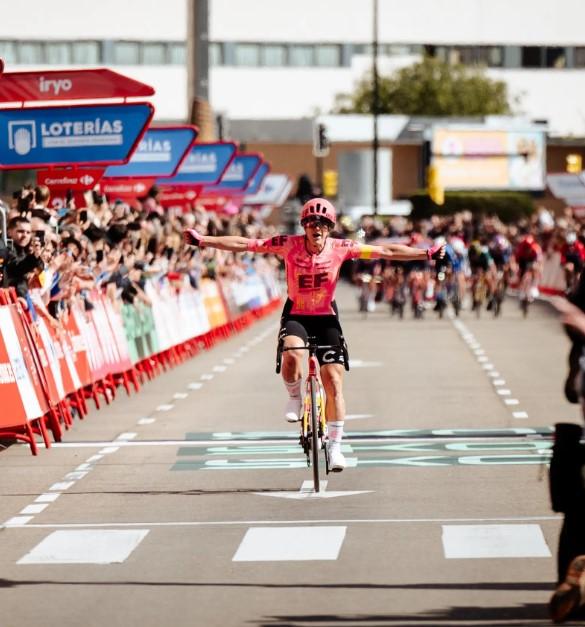
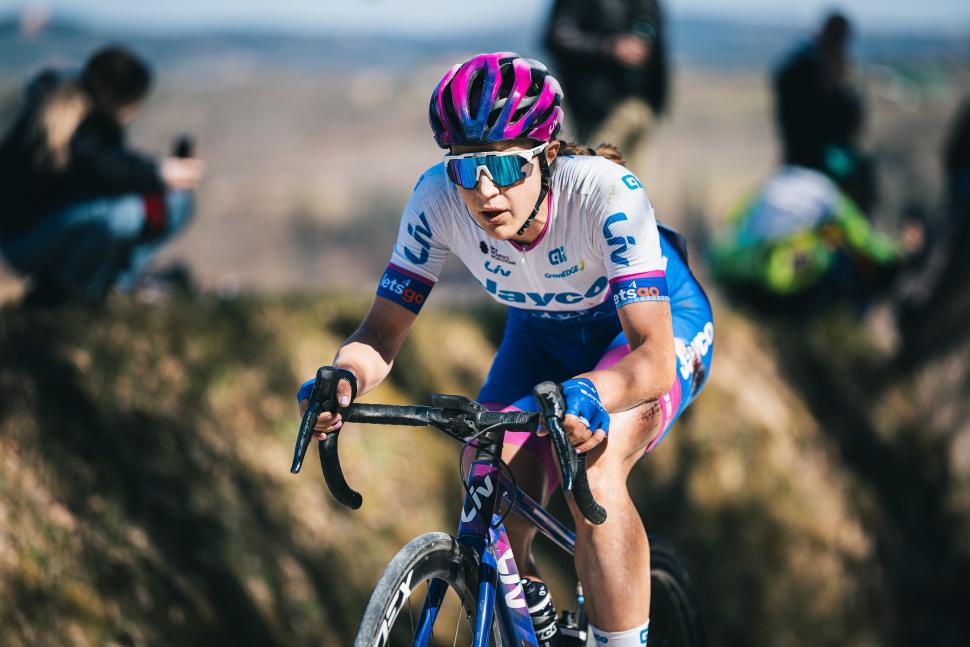
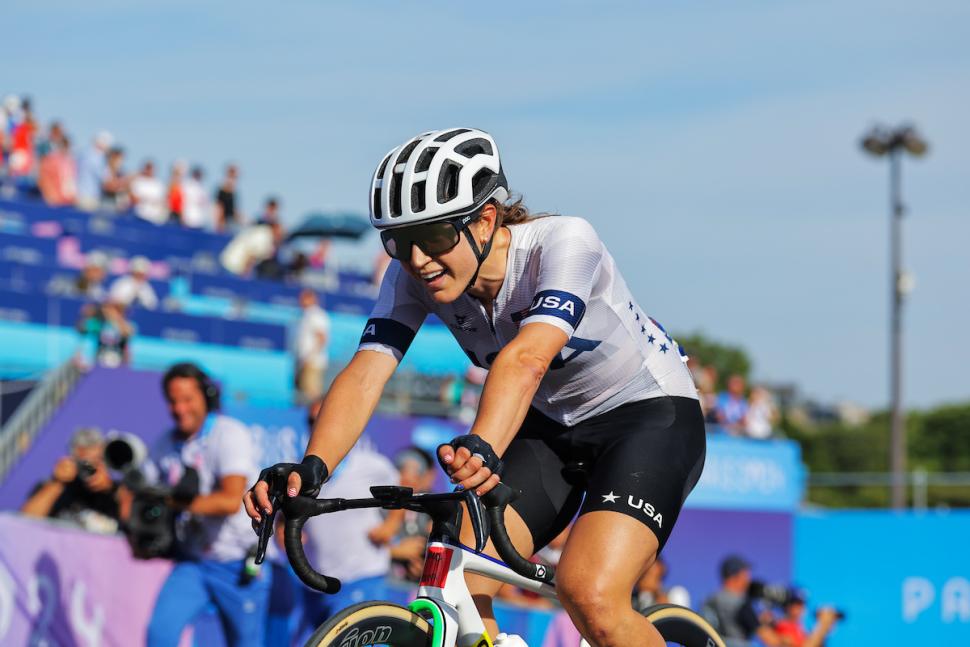
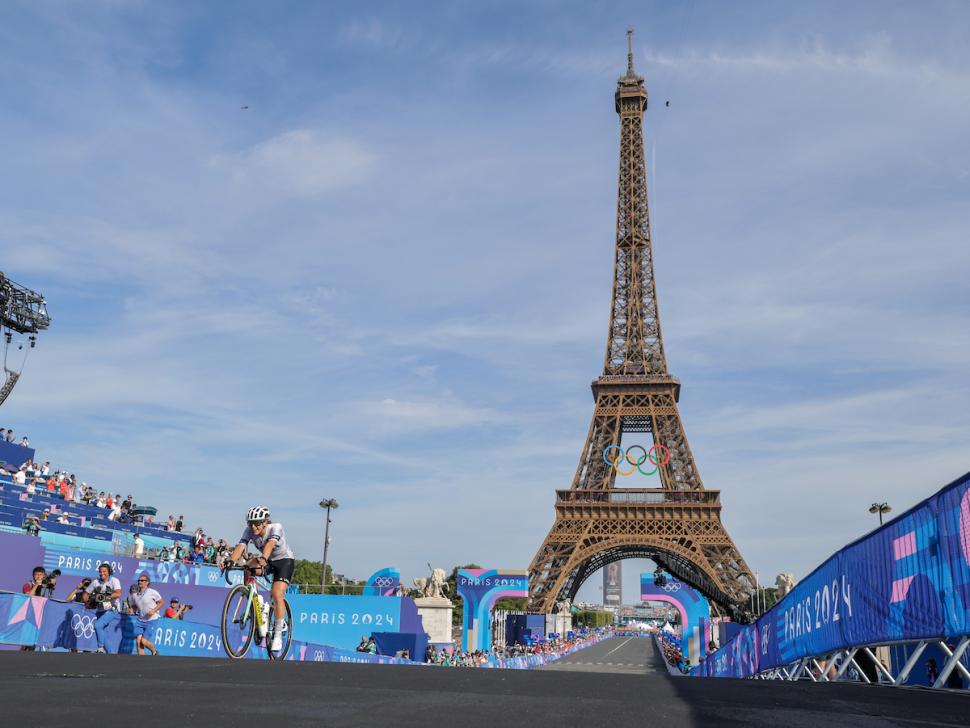
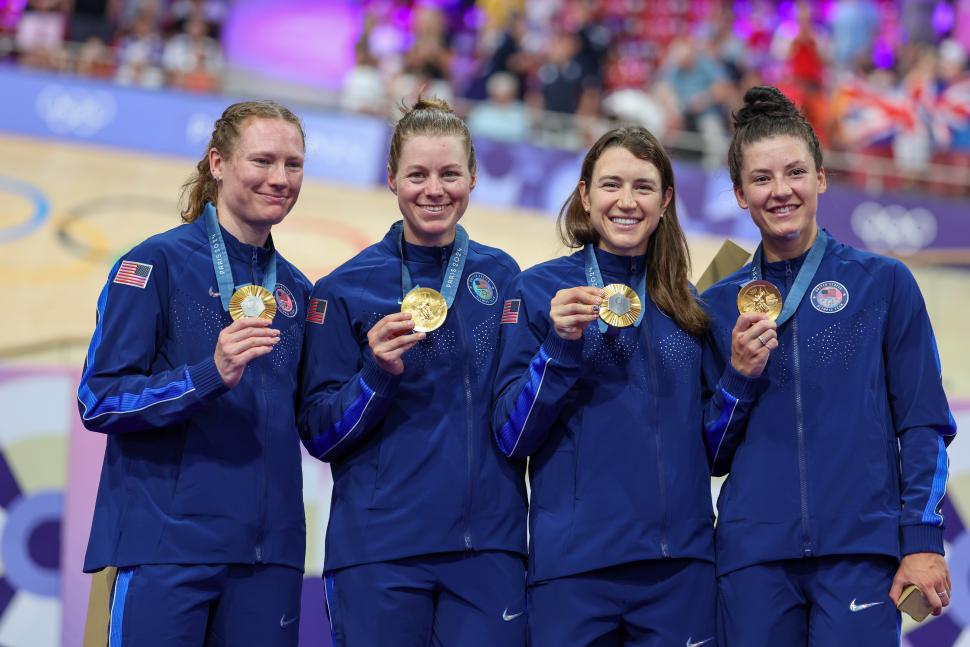
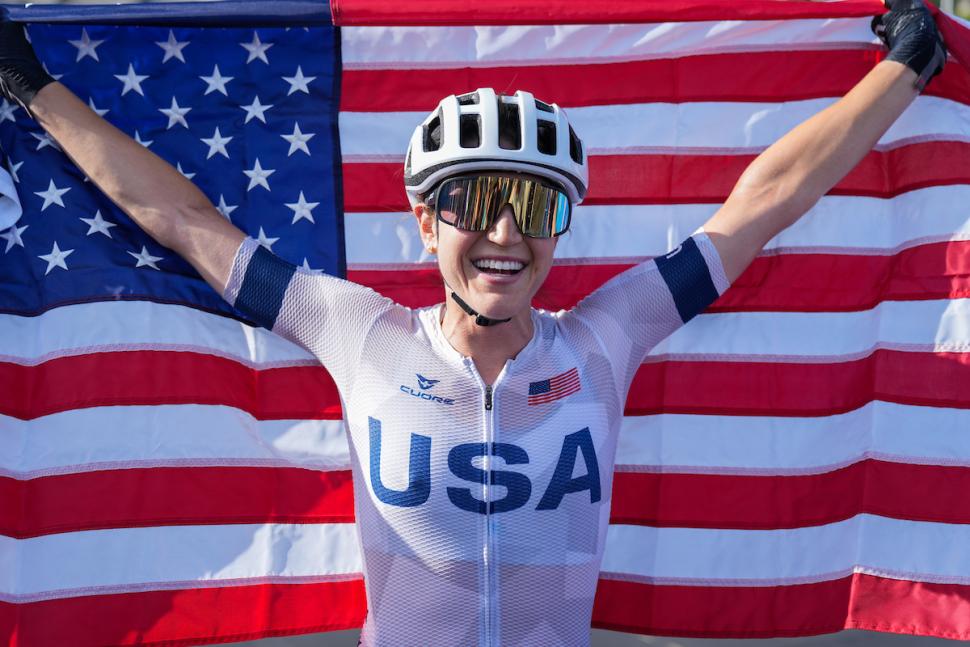
I wonder how many Cycling UK members still campaigned for the return of the winged wheel and the CTC name. They seemed to do that every year when I...
Can be a bit "tragedy of the commons". There are currently a lot of travellers in my district of the city; I'm not over all the details eg. whether...
I use a cheap motorcycle dashcam on my e-bike (~£100 for 2 cameras and a common recording box). Comes with a wired remote that I don't bother with....
Couple told their 'offensive' number plate was banned now have it on display in garden...
The other thing about the changes in Paris is that it is just so much more pleasant than it was before. Not only is the air cleaner, but the...
Replace those flimsy shutters with steel security bars, or they could use both together with the security bars on the outside of the shutters. ...
She may have a disability and have the car through Motability. She may have recently lost her job and the car dates from more prosperous times. For...
I got myself a klickfix freepack sport with the seatpost mount about 15 years ago which does exactly the same with more distance between saddle...
Traffic lights should routinely be programmed to turn red where sensors show speeding drivers are approaching...
By my reckoning there are eight comments from cyclists who don't think it's necessary, five comments from cyclists who think it's good, four...